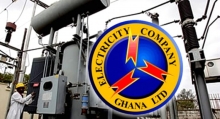PSI affiliate suspects fishy deal following announcement of Meralco Consortium as new manager of electricity in Ghana

PUWU has been fighting attempts by the government of Ghana to privatize the country’s electricity provider for years, embarking on demonstrations in front of the ECG offices as well as a series of other activities to get the government to back down on its decision.
However, about a week ago, news went round that the MiDA had selected Meralco Consortium, a firm from the Philippines, to begin processes to acquire ECG, a decision General Secretary of PUWU, Michael Adumattah Nyantakyo describes as strange.
“This whole process, we learnt that ECG which is the subject of the whole concession was not even represented on the evaluation panel. So we think something is very wrong because the people who are the asset owners, those whose assets you are going to give out to a concessionaire, do not have a say or even appraising who is going to take over the asset.”
The Meralco Consortium is led by the Manila Electricity Company (Meralco), a 115-year-old privately-owned company incorporated in the Philippines. Its electricity distribution network covers a third of the Philippines and serves a customer population in excess of six million.
In a statement signed by Director of Communication and Outreach of MiDA, Pamela Djamson-Tetty, MiDA, she said that, “following an international competitive procurement process, the evaluation of the proposals received for the management of, operation of, and investment in the Electricity Distribution Business of the ECG has been completed.”
According to the compact, the Millennium Challenge Corporation is expected to inject about $418 million into ECG, while Meralco will invest about $500 million as part of efforts to boost the capacity of ECG.
MiDA however assures Ghanaians that it will continue to adhere to, and uphold high standards of integrity and transparency throughout the process.
Meanwhile, a former Deputy Power Minister in Ghana, John Jinapor, is demanding a full disclosure on the identity of the indigenous Ghanaians who are reported to own 51 percent of the Meralco Consortium in the ECG concession arrangement.
“When the new policy was announced, you will realize that all the top and big companies pulled out because of the restructuring they [government] brought. So, I’m saying that let us confirm this new company indeed has 51 percent indigenous Ghanaian shareholding structure.”
Earlier, Country Director of the Millennium Challenge Corporation (MCC) in Ghana, Kenneth James Miller had projected that Ghana risks losing $119 million under the Power Compact II, if the government does not take steps to meet certain requirements by September this year.
Said David Boys, PSI Deputy General Secretary, “The Meralco model is not suited for Ghana – these long-term concession contracts often involve corrupt practices, are non-transparent, and are the result of political manipulation. Meralco’s track record needs to be examined in more detail, including allegations of ‘gaming the market’ to gouge consumers with undeserved and excessively high tariff increases. Further, the Philippines’ reliance on Independent Power Producers (IPPs) backed by Power Purchase Agreements (PPAs) has allowed the private sector to further gouge all energy users. We challenge the MCC to demonstrate the viability of their plans and choices and demand that they cease and desist their brinksmanship with the people of Ghana.”

